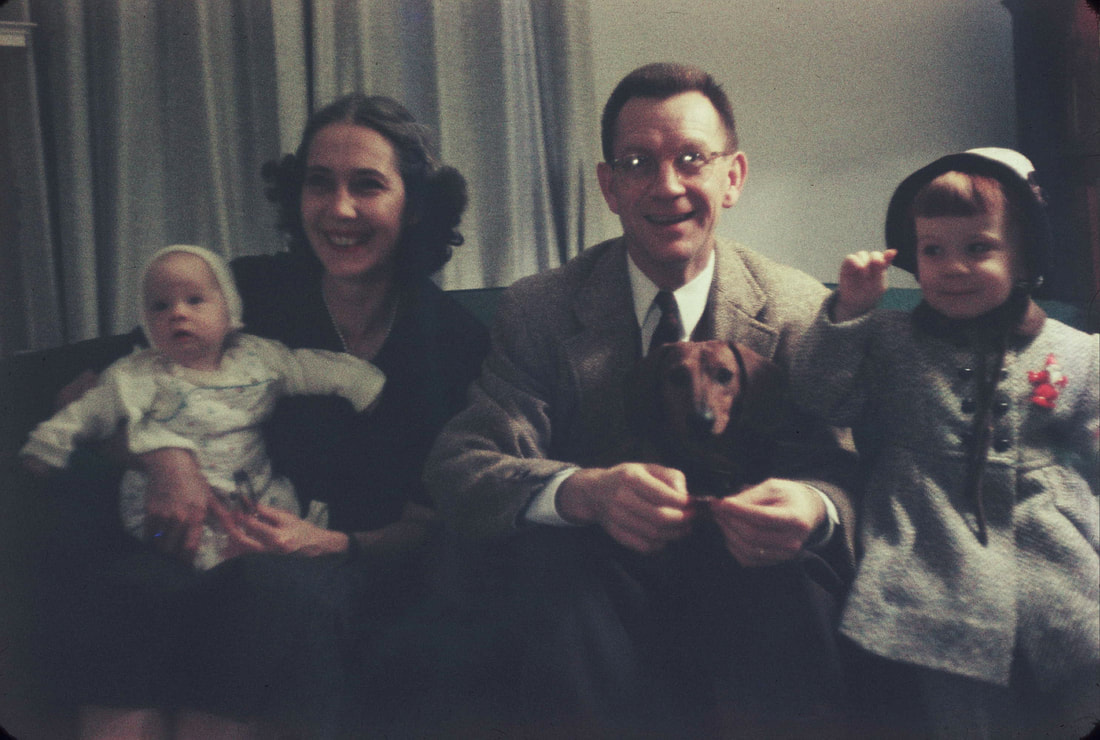|
Nobel Prize-winning writer Czeslaw Milosz is often quoted as saying, “When a writer is born into a family, the family is finished.”
I stumbled across this quote recently when reading about the one-woman play based on Elizabeth Strout’s novel My Name is Lucy Barton that opened earlier this year in New York. I chuckled. As I have pursued publishing two books about family members—one about my father who died when I was seven, and the other about my maternal grandfather whom my mother never knew—I have frequently wondered about the propriety or even the dangers of writing about family. In my case, I did not set out to write a “tell all” book or to reveal any uncomfortable truths about my personal experiences. In The Last Resort, I essentially let my father do the talking, and I was cautious not to include in the excerpts from his Harvard Forest journal any details that I thought might be construed as too personal or too negative toward those in his orbit. Nonetheless, I did want to reveal just enough to make him feel more fully human to readers. Next Train Out is, of course, a novel. It is a fictionalized telling of my grandfather’s life. I relied on the facts I had at hand to discern possible motivations or character traits that would lead him to take the actions he did. Some may consider the details of the story scandalous or horrifying. I simply view them as the facts. Nearly all the people who populate these books are long gone from this earth. That distance gave me some comfort and perhaps the license to share these stories. At the same time, I felt some responsibility for making my representation of the characters as truthful as I could, given the limitations of my knowledge. I would sometimes ask myself, “If Effie Mae’s descendants were to read this book and somehow recognize her in the telling, will they feel I have maligned her memory?” I don’t think so. There is one character in Next Train Out who is portrayed as a sort of villain, which I don’t believe is truly accurate. But I needed a foil for Lyons, and he was a good choice. I checked with his great-grandsons—my cousins—twice to be sure they would be OK with my fictional representation. They assured me I didn’t need to worry. Another cousin called recently to say how delighted she was to find her grandfather and other relatives identified by name in the novel. It made the whole story come alive for her. She probably didn’t remember that I had called her late last year to be sure she was OK with my using their real names. During that conversation, she offhandedly shared some physical and personality traits of those family members with me, which I dutifully incorporated into the story. So it can indeed be dangerous to have a writer in the family. Or in your circle of friends. But, as Anne Lamott wrote in Bird by Bird: Some Instructions on Writing and Life: “You own everything that happened to you. Tell your stories. If people wanted you to write warmly about them, they should have behaved better.”
5 Comments
Nancy Solodar
4/19/2020 10:11:18 pm
Sally, The photo of your family is exactly how I remember all of you. What a joy to see it.
Reply
Sallie Showalter
4/20/2020 11:10:32 am
Nancy, maybe that photo feels familiar because your sister Betsy sent it to me! I am so grateful to have these glimpses into that era.
Reply
Vince Fallis
4/20/2020 11:59:49 am
I think we’re all bracing for your next work which may reveal that we are more closely related to the Chicken Stealers than we ever wanted to acknowledge as a possibility.
Reply
Sallie Showalter
4/20/2020 01:46:59 pm
Oh, now you've given me an idea!
Reply
Barbara Fallis
4/20/2020 07:36:54 pm
Hold on to your skeletons, folks, Sallie is here, pen in hand.
Reply
Your comment will be posted after it is approved.
Leave a Reply. |
Details
Archives
June 2023
Categories
All
|



 RSS Feed
RSS Feed